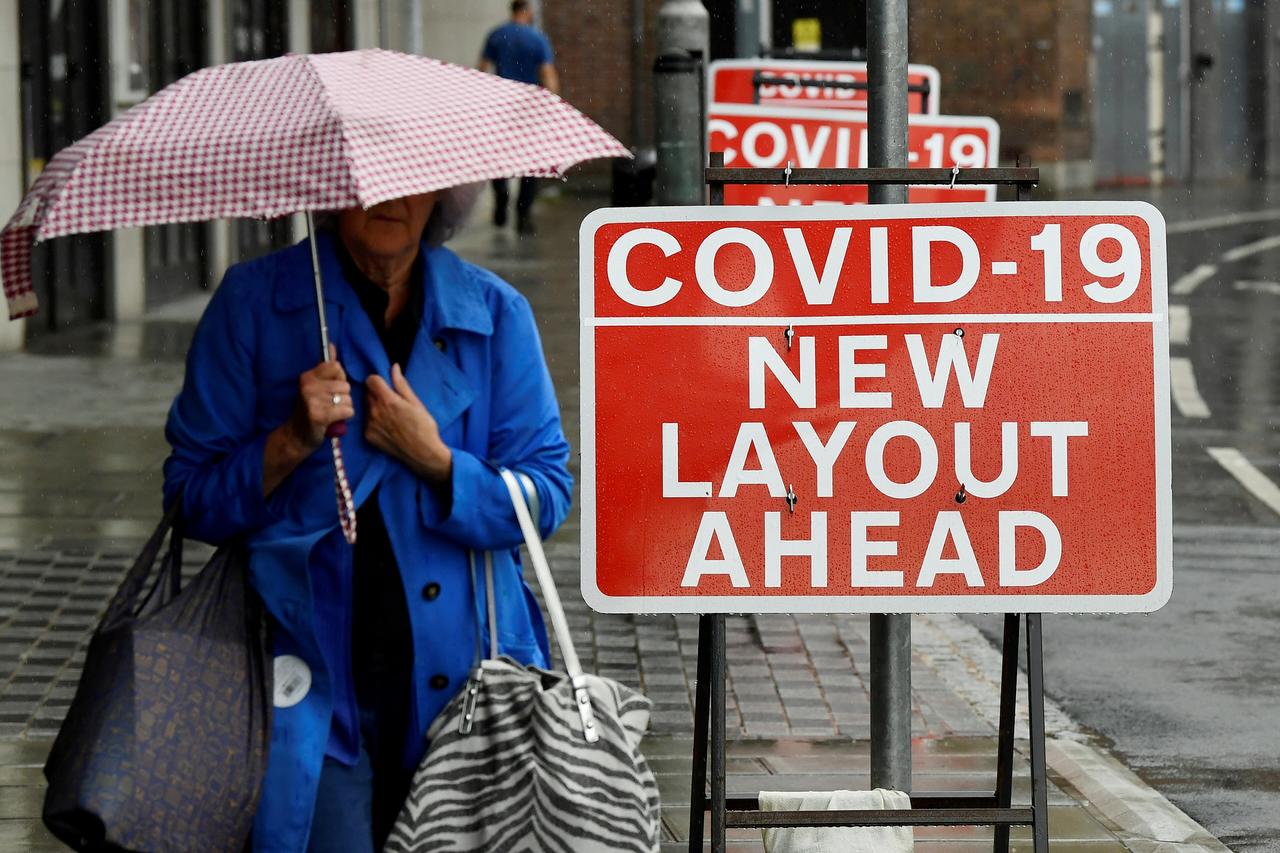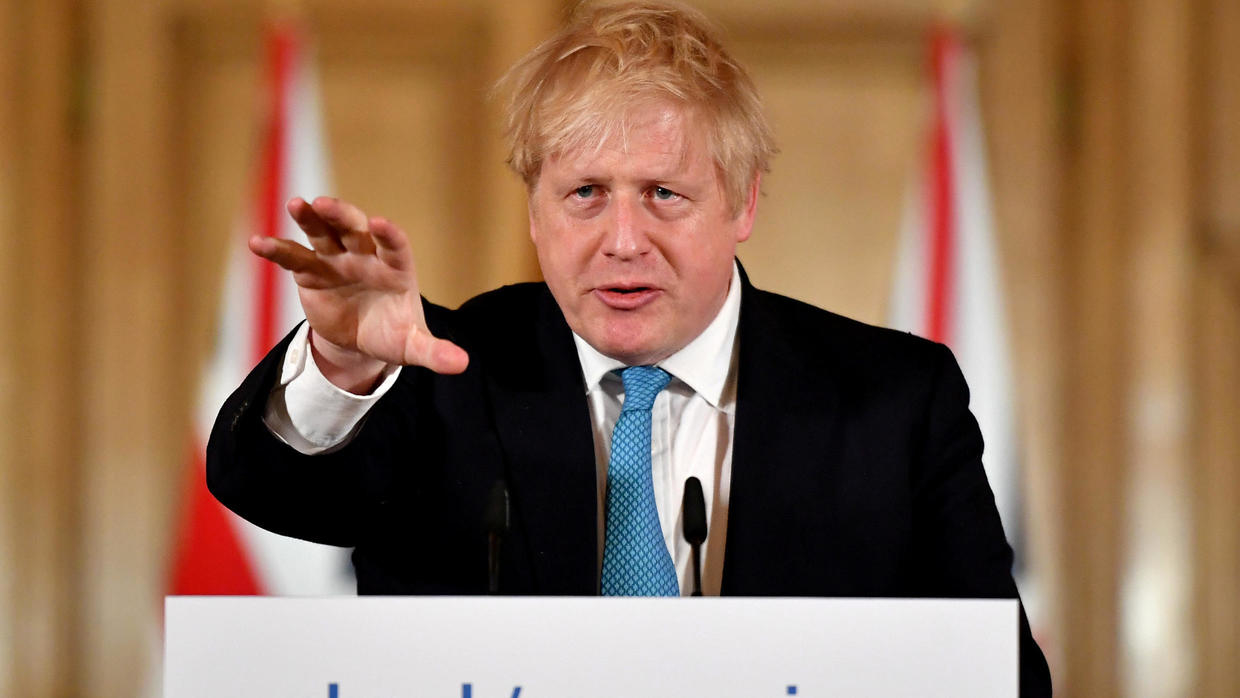
As markets reopen following months of inactivity, speculation is bubbling about the impact and severity of the economic turmoil that will be left in the pandemic’s path.
The most analogous failure to the impending economic turbulence is the financial crisis of 2008, caused, primarily, by the deregulation of the financial industry.
In the UK, the Tory government’s answer to the financial upheaval of the 2008 economic crash was to pin the blame on the alleged spendthrift antics of the Labour government that had preceded them, and to introduce a severe regime of austerity.
Long years of cuts to vital public services imposed by successive Tory governments in Britain resulted in weakened institutions – and the poorest, most vulnerable of society bearing the brunt of reductions in public spending.
Justifying the government’s freeze of public sector wages, the UK’s former prime minister, Theresa May, said there was “no magic money tree.” The patronising comments evoked anger from those working in public sector jobs, such as nurses, who, at the time of May’s comments in 2017, hadn’t had a pay rise in eight years.
“My wage slips from 2009 reflect exactly what I’m earning today. How can that be fair, in the light of the job we do?” one nurse asked in the audience of the BBC’s Question Time programme. The pitiful treatment of those working in the likes of nursing saw more than 33,000 walk away from the profession in 2017 alone, with the NHS described as “haemorrhaging” the nursing vocation.
The UK’s former Chancellor George Osborne’s pet project – aka austerity – left the UK’s social fabric in tatters and ill-prepared for a health crisis the size of Covid-19. As New Yorker columnist John Cassidy foresaw in 2013, when he wrote about Osborne’s austerity project failing: “Imposed at a time when the UK’s economy was recovering from the financial crisis of 2008-09, [austerity] subjected his countrymen and countrywomen to three more years of slump-like conditions, and it produced a dearth of public-sector and private-sector investment that will hobble Britain for years to come.”
Fast forward seven years to the wake of the deadliest pandemic the world has seen in modern times, and the austerity political-economic policy peddled by Conservative governments in response to the financial crash of 2008 has left public services underfunded, making them less equipped to deal with the pandemic.
Dismissing fears that the government will make public spending cuts in the wake of the coronavirus pandemic, Johnson said austerity would “not be part of the government’s economic recovery approach."
The coronavirus pandemic is an event which has led inevitably to the government spending money. Austerity had already run out of political road by the time of 2019 election, enabling Johnson to do what he enjoys doing – big gesture politics.
The prime minister excelled in his love of ‘big gesture’ politics recently when, speaking to the Radio Times, he admitted there are “bumpy times” ahead for the UK economy. In his usual style of referencing politicians of bygone eras in an attempt to add finery to his speeches and legitimacy to his policies, Johnson announced he wanted a “Rooseveltian” approach to the economy, referring to the former US president’s ‘New Deal’ programme that helped the US recover from the Great Depression in the late 1930s.
“…In the end what you can’t do is go back to what people called austerity, it wasn’t actually austerity, but people called it austerity, and I think that would be a mistake. I think this is the moment for a Rooseveltian approach to the UK,” said Johnson.
Some view Johnson’s likening of his government’s policies and approaches to those of Franklin Roosevelt – whose New Deal domestic agenda defined modern liberalism in the US by combining ideas of civil liberty and equality with support for social justice and a mixed economy – as ludicrous.
Johnson’s pledge to “build, build, build” in £5bn worth of infrastructure spending that will, in Johnson’s words, help the UK “bounce back better” from what’s poised to be an economic downturn worse than the financial crash of 2008, is a world apart from Roosevelt’s New Deal in the 1930s.
Unlike the New Deal spending of the ‘30s, which was estimated to be worth around 40% of US national income in 1929, Johnson’s £5bn infrastructure spending commitment equates to just 0.2% of the UK’s current GDP.
Roosevelt was determined to reshape capitalism for those on low incomes and the unemployed. His New Deal oversaw unprecedented government regulation of the US stock market and banks, including clamping down on speculative activities in commercial banking. Dissimilarly, by maintaining the Tories’ free-market approach, Johnson’s approach prioritises deregulation.
Roosevelt empowered trade unionism by bringing in the Wagner Act and the National Labor Relations Board to prevent businesses from treating workers unfairly. By 1937, more than eight million people had joined trade unions.
By contrast to Roosevelt’s trade union-championing Democrats, Conservative Party leaders in Britain and trade unions have a history of fraught relations, with Boris Johnson being no exception. In February 2020, reports surfaced that Johnson’s aides were drawing up plans designed to break the “stranglehold” of trade unions. The proposals included looking at bolstering the rights of non-union members in the workplace in a bid to reduce reliance on unions. Unlike Roosevelt’s purpose to lift people out of poverty and create a more equal society, Johnson’s New Deal approach to the post-Covid-19 economy is poised to hit the poor the hardest.
Instead of investing in the quality social housing the country desperately needs, Johnson has said that developers will be able to “build fantastic new homes on brownfield estates.” The net result of these “fantastic new homes” that enables developers to take advantage of planning loopholes such as Permitted Development Rights (PDR), is shoddy housing owned by private landlords who ask for expensive monthly rent that’s unaffordable for many.
As iNews writes: “This is bluntly a disaster and one that will only produce more unsafe, substandard homes in a country that is still only just coming to terms with the unfathomable disaster that took place at Grenfell Tower.”
Roosevelt’s strategy worked because he dedicated vast amounts of the United States’ GDP to getting the economy going, invested in major public projects, and empowered workers.
By comparison, Johnson’s pledge is trifling and is an example of one Tory government swapping years of painful austerity with another Tory government’s glorified pledges to rebuild a tattered economy, delivered by a leader who is intent on invoking the achievements of bygone political leaders to inflate his own status.
Sharing these thoughts is historian Dr. Andy Pickard, who told me, “The Roosevelt comparison is simply nonsense. Firstly, the scale of the New Deal was massive in comparison with what Johnson has done and may yet do. Roosevelt envisaged a transformation of American society in which the scourge of poverty and ignorance would be seriously addressed. In so doing, together with full employment produced by a wartime economy, he laid the foundations for post war prosperity.
“Secondly, Roosevelt knew that gross inequality and poverty was the outcome of power imbalances between capital and labour. To address this, he passed labour laws which encouraged the growth of trade unions and ensured the population as a whole shared the benefits of economic growth.
“No modern Tory prime minister, least of all Johnson, would ever contemplate restoring the trade union powers they have emasculated over the last 40 years.”















